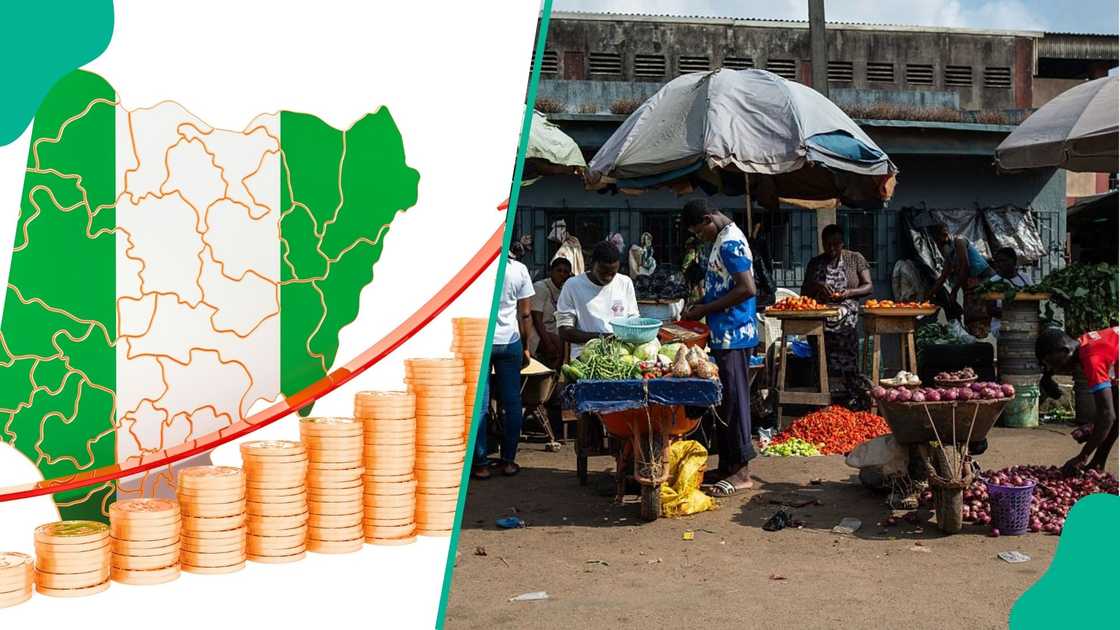FG, States, LGs Share N2.94 Trillion in October Amid Shortfall
- The Office of the Accountant-General of the Federation has released the breakdown of revenue shared by the Federal Account Allocation Committee for October.
- A total of N2.94 trillion was shared among the federal government, the 36 states of the federation and 774 local government areas.
- The October revenue was short of the amount shared in September, but higher than the total revenue shared in recent years.
Oluwatobi Odeyinka is a business editor at Legit.ng, covering energy, the money market, tech and macroeconomic trends in Nigeria.
The Federal Account Allocation Committee (FAAC) has disclosed that the total revenue shared by the Federal Government, 36 states and 774 local governments in October 2025 was N2.094 trillion.
The details are contained in a communique signed by the Director of Press and Public Relations at the Office of the Accountant-General of the Federation, Bawa Mokwa.

Source: Getty Images
The communiqué, released on Wednesday after the Federation Account Allocation Committee meeting in Abuja, shows that the October revenue was slightly lower than the N2.103 trillion shared in September.
The marginal shortfall of N9 billion represents a 0.43% decrease on a month-on-month comparison.
Breakdown of allocation
According to the communiqué, the Federation Account Allocation Committee (FAAC) shared a total of N2.094tn, made up of N1.376tn in statutory revenue, N670.303bn from Value Added Tax (VAT), and N47.870bn generated through the Electronic Money Transfer Levy (EMTL).
Although the document indicates that gross revenue for October amounted to N2.934tn, from which N115.278bn was set aside as the cost of collection, while N724.603bn was allocated for transfers, interventions, refunds, and savings.
Statutory revenue saw a slight improvement in October, with gross statutory earnings rising to N2.164tn, up by N36.832bn compared to the N2.128tn recorded in September.
However, VAT collections weakened during the month. Total VAT revenue fell to N719.827bn, representing a decline of N152.803bn from the N872.630bn posted in September.
From the distributable pool of N2.094tn, the Federal Government received N758.405bn, states got N689.120bn, and local government councils were allocated N505.803bn. Additionally, oil-producing states shared N141.359bn, representing the 13 per cent derivation from mineral revenue.
Within the statutory component of N1.376tn, the Federal Government’s share was N650.680bn; states received N330.033bn; and local governments got N254.442bn, while the N141.359bn derivation payout was also drawn from this segment.
From the N670.303bn VAT pool, the Federal Government collected N100.545bn, states received N335.152bn, and local governments were allotted N234.606bn. For the EMTL proceeds of N47.870bn, the Federal Government obtained N7.180bn, states received N23.935bn, and local governments got N16.755bn.
Petroleum profit, hydrocarbon tax, others drive revenue
The communiqué notes increases in petroleum profit tax, hydrocarbon tax, companies’ income tax from upstream operations, capital gains tax, stamp duties, oil and gas royalties, import duty, excise duty, and levies under the Common External Tariff. It also reports drops in VAT, EMTL, and fees.
October’s allocation maintains the pattern of monthly FAAC payouts surpassing N2tn, supported by strong oil earnings, robust tax inflows, and improved remittances from major revenue-generating entities. Nonetheless, the slight dip from September’s N2.103tn suggests volatility in VAT and EMTL revenues, which remain influenced by consumption trends and transaction activity, Punch reported.
Concerns over high FAAC allocation
The majority of the states in Nigeria rely on FAAC allocations, a situation that can create fiscal pressures, according to the 10th edition of the BudgIT State of States Report released earlier.
The report noted, for instance, that Lagos’s FAAC allocation rose from N4.24bn to N11.38bn, indicating how significant federation account transfers have become within a single fiscal year.
“15 states grew their internally generated revenue by more than 50 per cent, with Enugu recording the highest increase, while only two states had negative IGR growth. Kebbi is one of those, unfortunately, and it’s a reminder that both the government and citizens there need to take revenue generation more seriously,” the report added.
The report added that 29 states relied on FAAC receipts for at least half of their total revenue, 28 states relied on FAAC for at least 55 per cent of their total revenue, and 21 relied on it for over 70 per cent, Punch reported.
According to BudgIT executives, the more FAAC allocations go to states, the more disincentivised they are to boost their internally generated revenue, which raises concerns.

Source: Getty Images
Salary delay persists
Legit.ng had reported that the government claimed increased allocation would reduce fiscal burden on states and local governments.
Presidential aide Daniel Bwala said at the time that Nigerian governors are enjoying record revenue flows under Tinubu, making salary delays a thing of the past.
However, while allocations have increased over time, protests over salary delay have recently been reported in some states, and many states have not implemented the N77,000 minimum wage.
Source: Legit.ng





